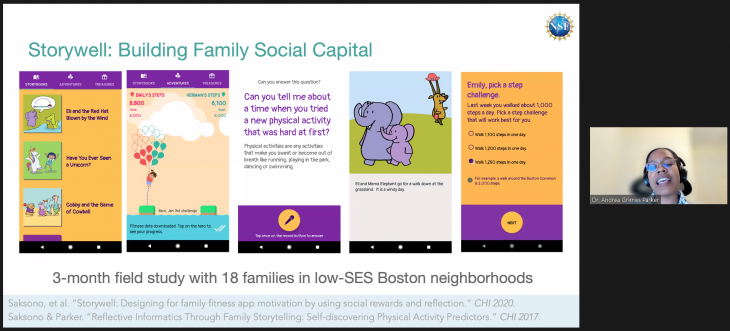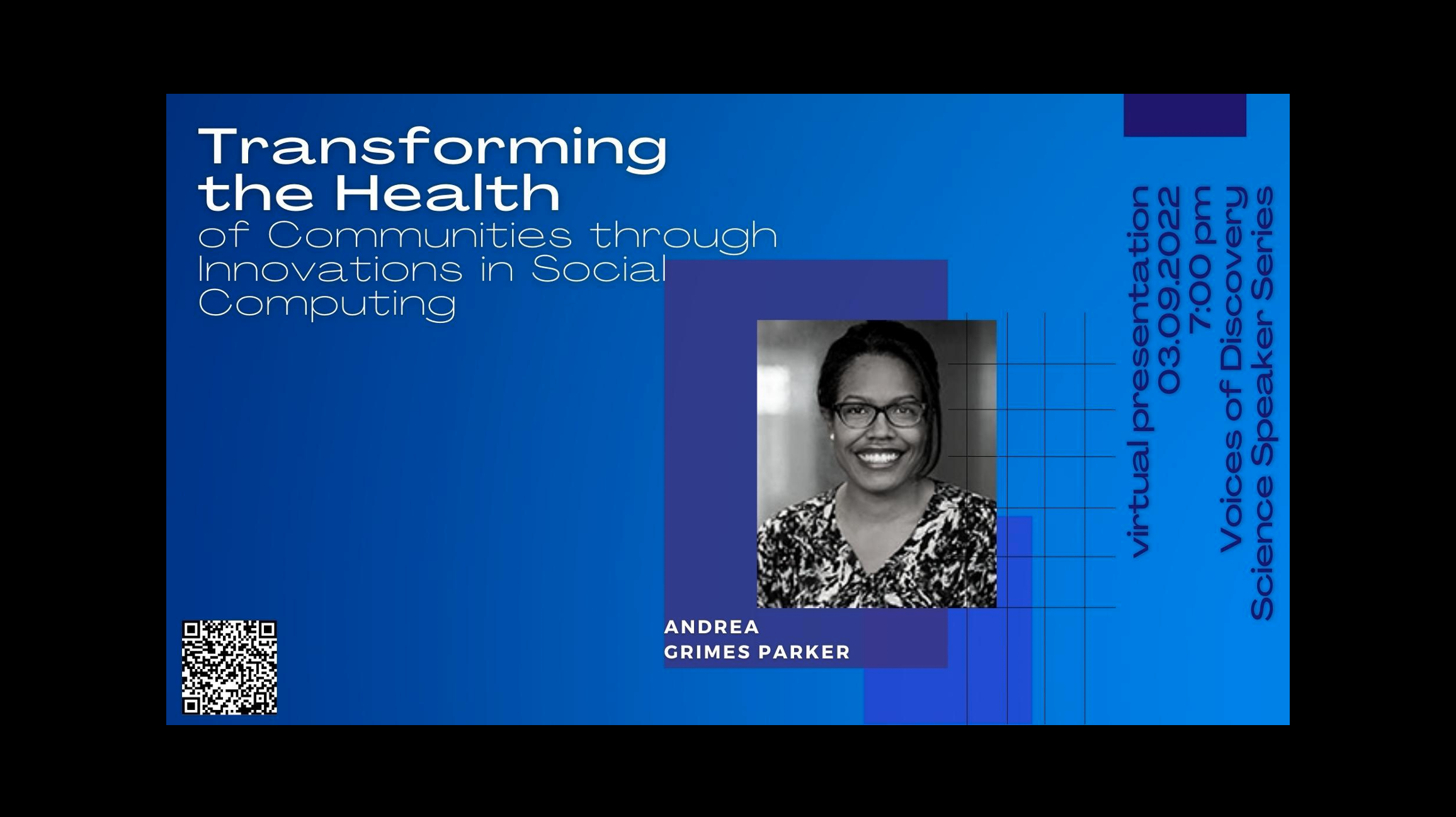Andrea Grimes Parker, founder and director of the Wellness Technology Research Lab at Northeastern University, presented a Voices of Discovery lecture Wednesday showing how mobile health apps incorporating family and social interaction are successful in promoting lifestyle changes and building community.
Fitbits are a good start, but there are better ways technology can promote wellness and strengthen relationships — particularly in communities of color and low socio-economic status where health disparities exist.
“Much of the innovation in mobile health has focused on individual health behavior changes. We need to design technology that helps build social infrastructure. Doing so can nurture user engagement and directly address health disparities,” said Andrea Grimes Parker, founder and director of the Wellness Technology Research Lab at Northeastern University, in a virtual Voices of Discovery lecture to Elon audiences on Wednesday, March 9. The Voices of Discovery series is sponsored by Elon College, the College of Arts and Sciences.

Parker — an associate professor at Georgia Tech’s School of Interactive Computing; adjunct associate professor with Emory University’s Rollins School of Public Health; and the Morehouse School of Medicine — detailed her findings around digital health equity at the intersection of human-computer interaction, social computing and public health.
Mobile health apps often don’t lead to lasting behavior changes, research has shown. Many of us tend to turn off or ignore notifications on our phones as the novelty wears off. Although the research focused on health disparities involving race, ethnicity and socio-economic status is limited, it suggests that individualized apps have limited impact among lower socio-economic groups.
Lower-income families tend to have less access to safe outdoor activity spaces, higher obesity and child-obesity rates and have higher socioeconomic stressors that challenge healthy eating and physical activity, Parker said.
With the Wellness Technology Lab, she designed software tailored to “establish, enrich and engage social relationships” through family and neighborhood activities while accounting for environmental barriers to wellness. The results have been promising.
Parker created Spaceship Launch, a game and fitness dashboard that encourages families to be active to earn “fuel points” toward a child’s rocket launch.
The interface rewards reflection on caloric intake and activities with more fuel points. A three-week field study of 13 families showed positive results: more time engaged in moderate and vigorous physical activity, relationship-building activities and conversations, and dialogues and connections to other families in community gyms where the program was hosted.
Storywell is another digital game created by Parker which builds literacy and encourages physical activity by unlocking new story chapters as participants meet “family challenges” and make progress.
Reflective questions incorporated into the game brought conversations and bonding moments between parents and children, and the physical closeness of reading a story brought families together.
A separate Storywell study showed success in building connections between neighbors in communities, even in areas where residents feared crime.
Parker is also researching ways social media and analytic tools can help empower youth to engage in social action. Better understanding of their social networks would give youth more insight into the social capital within their sphere of influence and increase civic and political engagement.
Her future social computing research will study interventions to maternal health inequities among Black women, who are three times more likely than White women to die during pregnancy and childbirth, and how mobile health platforms could be incorporated into faith-based settings, which are often central to Black communities.
“It’s key that we keep equity in focus. It’s imperative that we build technology … that supports and strengthens these communities by addressing health disparities through systems that build social infrastructure,” Parker said.



